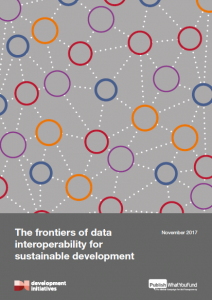The frontiers of data interoperability for sustainable development: where next?
There is an ever-growing need for a more holistic picture of development processes worldwide and interoperability solutions that can be scaled, driven by global development agendas such as the 2030 Agenda and the Open Data movement. This requires the ability to join up data across multiple data sources and standards to create actionable information.
Solutions that create value for front-line decision makers — health centre managers, local school authorities or water and sanitation committees, for example, and those engaged in government accountability – will be crucial to meet the data needs of the SDGs, and do so in an internationally comparable way. While progress has been made at both a national and international level, moving from principle to practice by embedding interoperability into day-to-day work continues to present challenges.
Based on research and learning generated by the JUDS project team at Development Initiatives and Publish What You Fund, as well as inputs from interviews with key stakeholders, this report aims to provide an overview of the different definitions and components of interoperability and why it is important, and an outline of the current policy landscape.
We offer a set of guiding principles that we consider essential to implementing interoperability, and contextualise the five frontiers of interoperability for sustainable development that we have identified. The report also offers recommendations on what the role of the Collaborative could be in this fast-evolving landscape.


